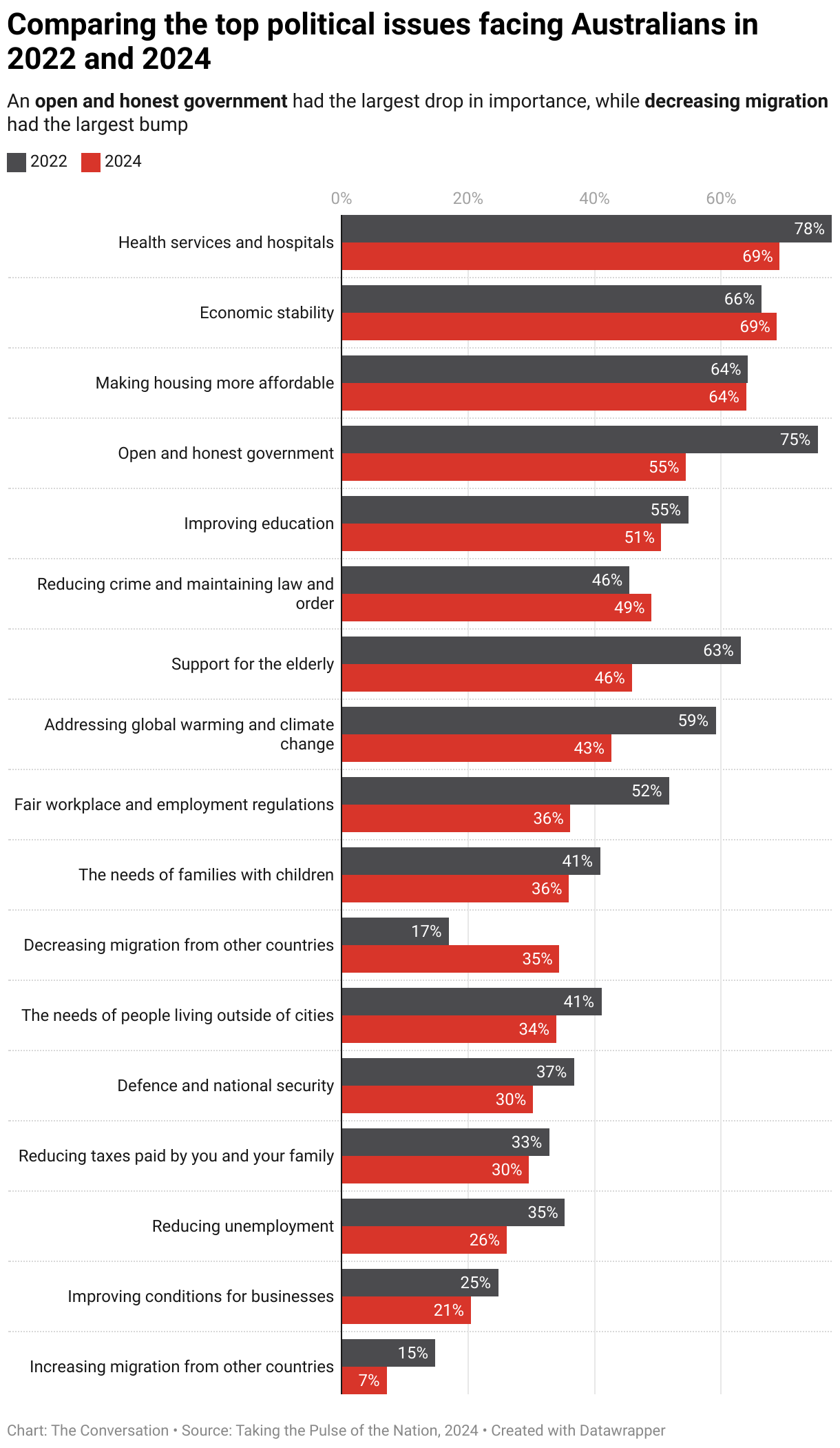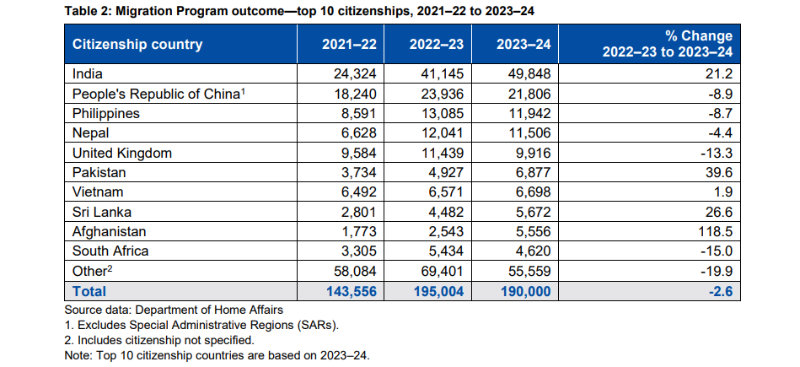A so-called Australian immigration crisis is a central election issue, but it’s based on misconceptions easily debunked by any examination of the evidence. Immigration experts Fethi Mansouri and Amanuel Elias with the story.
Immigration has been a pawn for political dog-whistling and misinformation for decades, and the 2025 election campaign promises more of the same, with Labor and the LNP engaging in a game of my-number-is-smaller-than-yours game.
The lack of agreement on a coherent long-term vision for an Australian immigration policy that in 2025 is not fit for purpose leaves migrants at the centre of a concocted debate where politicians compete for the most powerful headlines.
Yet it’s a debate where many of those competing headlines are based on myths — often around numbers, economic, democratic or social impact and even the environment — that simply don’t stand up when the evidence is examined. Recent elections in the US, the UK, India and Argentina show how the immigration debate can play out.
Managing immigration is rated as one of the top 10 issues for the Australian public, with about 35 percent in favour of reducing it.

In 2001, the Tampa crisis became the decisive issue shaping the final election outcome, with Prime Minister John Howard infamously declaring: “[We will] decide who comes here and under what circumstances.”
Similar rhetoric has been part of the political discussion for more than two decades since.
Immigrant nation
Despite recent debates fuelled by rising anti-immigration sentiment, it is essential to recognise the significant role immigrants have played in shaping Australia’s identity and building its economic prosperity.
So, is there any truth to the myths about immigration?
Australia is an immigration country par excellence and has long been shaped by immigration, from its colonial origins to its contemporary multicultural landscape.
Labour shortage has always been a key driver of immigration, as the arrival of immigrants replenished the Australian labour market.
State governments targeted immigrants to meet labour needs well before Federation. This changed with the 1901 Immigration Restriction Act, infamously known as the White Australia Policy.
Before World War One, immigrant cohorts were mainly European but the 1960s – and the adoption of multicultural policies – signalled a shift and an increase of migrants from non-European countries. It also coincided with an extended period of economic growth.
Despite recent debates fuelled by rising anti-immigration sentiment, it is essential to recognise the significant role immigrants have played in shaping Australia’s identity and building its economic prosperity.
The myths
There are common myths and misconceptions about the immigration system.
Some are:
- There are too many immigrants and soon ‘white’ Australians will become a minority.
- Immigration hurts the economy and leads to unemployment, inflation and housing shortage.
- Immigration is a threat to liberal democracy; migrants are often criminals or could threaten the national culture and social cohesion.
- Immigration threatens sustainability and can lead to the degradation of biodiversity.
The numbers
A long-standing overestimation of immigrant numbers feeds into fears about being overrun by an influx of non-white immigrants.
This is not supported by the evidence. Immigration remained relatively stable from 2008 until the COVID-19 pandemic. After a slump in arrivals in 2020-2021 and a spike in 2022, there were about 190,000 new arrivals in 2023.

Australia’s recent immigrant intake remains below the OECD average, with international students and other temporary entrants representing the largest cohorts.
Caps on international student numbers creating headache for universities
The economics
An argument portraying immigration as leading to unemployment, inflation pressures and housing shortages ignores the fact that immigration has helped address Australia’s frequent labour shortages. Skilled and unskilled workers have been integral to the country’s economic growth.
There is overwhelming evidence of net gains from immigration over decades, in skills and economic benefits. Immigrants contribute significantly to Australian society through labour productivity and international student income and culturally, enriching the country’s multicultural fabric.
The threats
Some groups argue that immigrants reject liberal Western and Australian values and portray immigration as a threat to liberal democracy. The argument is often linked with security concerns and exclusivist nationalist rhetoric, sparking talk of foreign interference and questioning immigrants’ loyalty to Australia.
There is no empirical evidence that immigration poses particular political or security risks for Australia, despite the political and security stance on migration since 2001 and the emphasis on border protection since 2013.
In that context, immigrants are often criminalised and portrayed as a threat to national culture and social cohesion. Despite the claims, evidence shows Australia has enjoyed a high and stable level of social cohesion for 17 years.
There is also a view, based on the notion that net overseas immigration increases the population, that immigration somehow hurts the environment.
Excessive population growth can certainly damage the environment but Australia’s migration intake is barely enough to stave off projected demographic decline and ensure services can be delivered along with economic growth.
Given its declining birthrate, without immigration, Australia’s population would enter a ‘demographic winter’,
with an ageing population leaving a shrinking workforce to provide essential services.
Immigration politics
Myths about immigration persist partly because of the inadequacy of Australia’s policies, which have often lacked clarity and strategic focus.
The 1996 adoption of a more securitised approach to immigration has changed the nature of the debate, and successive election campaigns have largely focused on asylum seekers and border controls.
Capping immigration numbers has become a bipartisan policy agenda, with the key arguments centred around who will make the deepest cuts. Labour wants to cap immigrant inflow at 190,000, while the Coalition has promised to cut the annual immigrant intake to an average 150,000 over the next four years.
While most Australians have a favourable view of our multicultural society, anti-immigration voices are often the loudest and can dominate the political debate. Far from undermining the nation, immigration has been a cornerstone of Australia’s economic prosperity and social fabric.
It is only normal that immigration is subject to public debate, but it needs to be based on facts, not divisive myths.
This article originally published under Creative Commons by 360info™.


